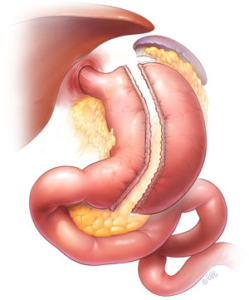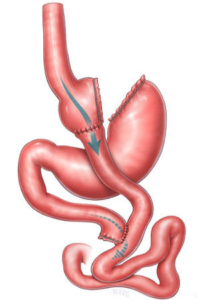For 95-99% of all history, humans lived as hunger-gather societies. A relatively quick shift from hunter-gather societies to sedentary agriculture has lead to the rapid development of obesity. It was not until the 20th century that it became common, so much so that in 1997 the World Health Organization (WHO) formally recognized obesity as a global epidemic. Once considered a problem only of high-income countries, obesity rates are rising worldwide. WHO estimates that at least 1.5 billion adults (21%) are obese, with higher rates among women than men. The rate of obesity also increases with age at least up to 50 or 60 years old. Urban Indian women are piling on the pounds faster than men.
Why obesity hits women harder?
The common reason for obesity in general are unhealthy food habits, certain genetic predisposition, over eating, slow metabolism, physical inactivity, certain medications, and certain hormonal disorders. The prevailing misconception is that fat people are lazy, eat all the time and lack self-discipline. It's a stereotype that works more against women than men, reports a new study from Yale University, US. It takes a modest weight gain for a woman to experience weight discrimination while men can gain far more weight before encountering the same. Published in the International Journal of Obesity, the report analyses how women begin to face noticeable discrimination-such as, problems at work or difficulty in personal relationships- when they reach a Body Mass Index of 27. The fat bias leads to a vicious cycle of using food in response to negative emotions- boredom, sadness, anger, stress-and more difficulty keeping weight off. Overweight and obese women are more than twice as likely to be depressed, exercise the least, have the poorest body image, and consume 20 per cent more calories. Therefore, to maintain healthy body it is necessary for women to overcome obesity.
What are the problems that can occur due to obesity?
Common Health Problems Due to Obesity include Diabetes, High blood pressure, High cholesterol, Heart problem, Stroke, Sleep related problems, Depression, Osteoarthritis. However women will have added issues along with the above to worry about. They are:
- Menstrual Disorders
Obese women suffer from menstrual disturbances even in early age. For premenopausal women, obesity causes irregular menstrual cycle and even infertility. - Pregnancy Complications
If an obese woman gets pregnant, maximum chances are there of going through a caesarian delivery. It has been observed that high percentage of babies goes through complications if born for obese women. - Sexual Problem
Recent researches and studies have proved that obese women are not able to satisfy their sex life. Problems like depression and others also hamper the fulfillment of sex life for obese women.
What are the measures to calculate obesity?
The body mass index (BMI) is a now the measurement of choice for many physicians and researchers studying obesity. The BMI equals a person's weight in kilograms divided by height in meters squared (BMI=kg/m2).
The World Health Organization uses a classification system using the BMI to define overweight and obesity.
- A BMI of 18 to 24.9 is defined as “ Normal”
- A BMI of 25 to 29.9 is defined as a "Over Weight."
- A BMI of 30 to 34.99 is defined as "Obese class I."
- A BMI of 35 to 39.99 is defined as "Obese class II / Super Obese."
- A BMI of or greater than 40.00 is defined as "Obese class III / Morbid obese."
How to Overcome Obesity?
If you are obese or overweight and you want to reduce your weight, you need to keep in mind few things and be prepared to give it sufficient time. It is advisable that you go for a healthy lifestyle and make some necessary changes in your daily routine. This will help you get gradual and consistent weight loss. This will also not harm your body and system as well.
- Drink lot of water
- Think about bringing changes in your diet and not run away from it
- Avoid junk food
- Add fruits and vegetables
- Set small meals instead of two or three big meals
- Enjoy your workout. Choose enjoyable workouts and stick to it
- Get plenty of sleep. Switch to yoga and see the benefits. Be positive always.
What next if you fail to lose weight?
If the above routine fails, or if you are fed up of continuing the routine for long or you gained more than before after you stop the weight management routine and you wanted to permanently lose weight without much hard work, then surgery is the only possibie approach. Though it’s a short cut to weight loss, it is best recommended for people over a BMI of 32 and with obesity related issues and complications.
According to international criteria, the indications for obesity surgery are BMI > 35 or BMI>32.5 with pronounced co-morbidities. Nevertheless, limits to the indication for surgery continue to be changing. For example, diabetes specialist suggests a BMI of 30 in patients with type 2 diabetes as an indication for surgery. Anti-obesity surgery works through simple principles that affect Ingestion [Restriction], Assimilation & Storage [Malabsorption], and Desire to ingest [Satiation and Aversion]. Current three widely performed surgical procedures in India are Sleeve Gastrectomy, Roux-N-Y Gastric Bypass and Mini Gastric bypass. These procedures aid in up to 90% excess weight loss in a year and resolution of co-morbidities like diabetes, high blood pressure, high cholesterol, sleep apnoea, infertility, menstrual disturbances, etc up to 80 – 90% with in a few weeks.
Metabolic Surgery (Surgery for Diabetes):
Though the above procedures resulted in control/ cure of diabetes and other co-morbidities, they can only be performed in obese patients. The need for control of diabetes in non-obese patients lead to the development of Diabetic surgery or Metabolic surgery for resolution of diabetes associated without obesity. Metabolic surgery can also be sometimes performed for Hypertension and Cholesterol alone. Ileal Interposition (SG-IT) or Duodenojejunal bypass (DJB) are two of the recommended surgeries to resolve or cure diabetes. Studies showed resolution of up to 95% even in patients on Insulin who doesn’t need it anymore after surgery.
Surgical Techniques:
These surgeries are performed purely by laparoscopic techniques, which include conventional laparoscopic surgery, the next generation scarless Single Incision Laparoscopic surgery (SILS) and the revolutionary Robotic surgery.

Life after surgery:
The modifications made to your digestive tract will require permanent changes in your eating habits that must be adhered to for successful weight loss. Most important is that you adhere strictly to your nutritionist’s recommended guidelines. Over time, you will need periodic checks for anaemia and Vitamin B12, folate and iron levels. Follow-up tests will initially be counted every 3-6 months, or as needed, and then every 1 to 2 years. Ongoing support following any procedure is essential to help patients modify behaviours, lose weight and keep the weight off. Talking with the surgeon’s staff and patients is a good way to find out how much support is offered by the bariatric clinic.
Many patients who have had bariatric surgery report improvements in their quality of life, social interactions, psychological well-being, employment opportunities, and economic condition. An over all improvement of up to 95% in quality of life is shown in most of studies across the world.
How to make an informed decision?
The first and most important step in the process of preparing for surgical weight loss management is the decision making step. We know that it may be difficult to distinguish between various procedures, practices, surgeons, or hospitals. We believe that the best way to help you is to make available to you accurate and scientific information about your options in a personalized setting so that you can make the most suitable and informed decision. Consulting an advanced tertiary center with all possible options of weight loss program available is the best way forward as the entire treatment option should be tailor made to suit individual needs. You also need to think about your determination and ability to make some serious changes in the way you live your life. Bariatric surgery is a tool to help improve your health. As with any new tool, you must actively learn how to use it to get the best benefits.
Remember, life is much more than just being a successful professional. Enjoy your life staying healthy always. Get in touch with us through our helpline for any further information, consultation, and referrals.
LETS JOIN HANDS TO PLEDGE FOR AN OBESE FREE WORLD.
By Dr. Raj Palaniappan
MS, MMAS, FICS, FRS, DMAS, FMAS, FALS, FLS
Director, Institute of Bariatrics
Apollo Hospitals, Greams Lane, Chennai
Ph: +91 9566095660
Email: raj@apollobariatrics.com
Website: www.apollobariatrics.com




